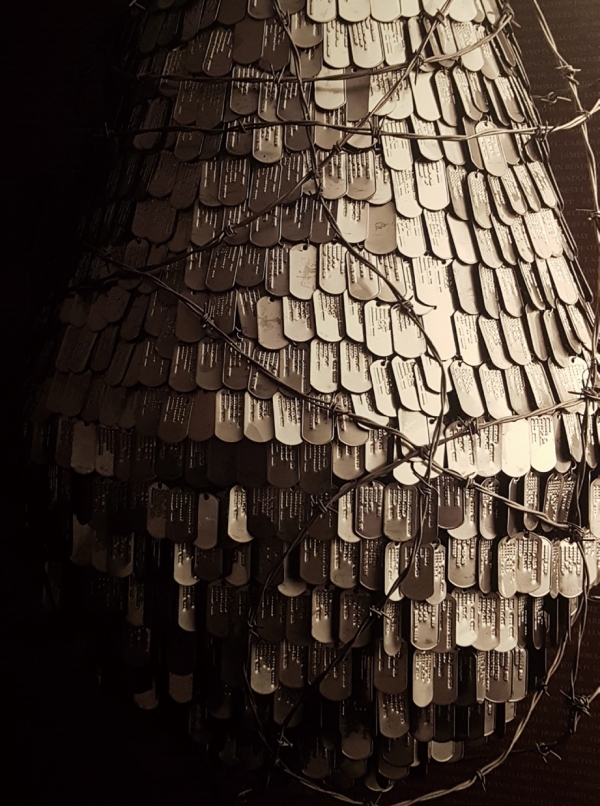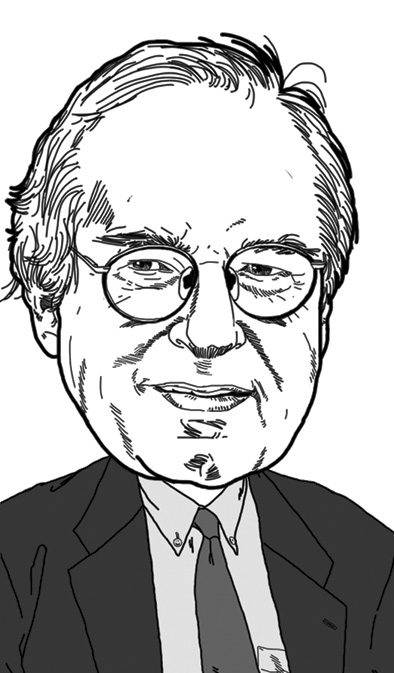군복을 입은 남녀 군인들에 대한 태도는 국가의 분위기 즉 국가가 전쟁 중인지, 정책 입안자와 정치인들은 전쟁에 대해 어떻게 생각하는지, 그리고 그것이 정말로 대중의 지지를 받고 있는지에 따라 크게 변한다.
베트남전 동안 시위대는 미군을 돌려보내려고 모욕을 퍼부었다. 젊은이들은 무슨 이유로든 징집을 피했다. 빌 클린턴은 복무하지 않은 것에 대해 연이어 변명했다. 한 의사는 도널드 트럼프가 ‘뼈 스퍼(골곡, 퇴행성)’를 앓는다고 했다. 군 복무를 하루도 하지 않고 국방장관과 부통령이 된 리처드 체니 부통령은 5차례 징병유예를 받았다.
하지만 최근 몇 년 동안 내가 다녔던 야구와 축구 경기장에서 관중들은 군복을 입은 군인이 보일 때 환호했다. 팬들은 언제나처럼 애국가를 위해 7회에 “God bless America”(축복이 깃들기를)가 울려 퍼질 때 일어섰다. 일부 프로축구 선수들은 인종차별에 항의해 애국가를 부르는 동안 무릎을 꿇는 모습을 보이기도 했지만 압도적인 분위기는 단순히 군대에 대한 존경만이 아니라 그들이 하고 있는 일에 대한 지지다.

한국에서 군인에 대한 태도가 얼마나 다른지 궁금하다. 나의 인상은 젊은 남자들이 군복무를 마치고 병역 의무를 이행하는 데 필요한 만큼 기록에 남기는 것을 자랑스럽게 여긴다. 그들은 군복무를 하고 싶지 않았을 수도 있고 군복무를 하면서 병역을 좋아하지 않았을 수도 있지만 수백만 명의 한국 남성들은 군대를 갔다 왔다는 사실을 공유하고 있다.
그들 중 일부는 정부에 비판적일 수도 있고 미국과의 동맹에 반대할 수도 있다. 그들은 사실 미국인들이 그들의 남은 군사 기지를 폐쇄하고 본국으로 돌아가 다시는 돌아오지 않기를 바랄 정도로 반미적인 태도를 보일 수도 있다. 그러나 그러한 반응은 소수, 아마도 미세할 것이다.
장기복무를 결정한 한국인들은 여전히 자신들은 진급을 통해, 자신들이 장교라고 자랑스럽게 말할 수 있다. 대학 교육을 받지 않은 사람들은 그들이 신병들에 대한 막강한 권한을 가진 주임상사라고 자랑스럽게 말한다.
제2의 한국전쟁이 발발하면 복무중인 수십만 명의 젊은이들 중 많은 사람들이 죽을 것이다. 20만 명 이상의 한국 군인들이 한국 전쟁에서 사망했다는 것을 잊지 말자. 또한 미군과 다른 국가에서 파병된 4만여 명의 군인들이 목숨을 잃었다.
사실 군대에 다년간 몸담고 있는 한국인들은 국가를 위해 봉사하는 데 걸맞게 필수품과 급료, 혜택 등을 누린다. 한국의 고위 장교들은 그들의 권위와 또 다른 전쟁에 대비할 필요성으로 존경 받는다.
미국은 베트남전쟁 때처럼 미국인들이 더 이상 격분하지 않으면 또 다른 확대된 분쟁에 개입할 것 같지 않다. 미국은 1975년 베트남전쟁이 끝나기 몇 년 전에 이 초안을 폐기했으며, 미 의회가 이 초안을 부활시키고 싶어 할 것 같지는 않다.
우리는 반전 시위자들이 워싱턴과 다른 미국 도시에서 이란과 한국이든 먼 나라에서 다시 전쟁을 벌일 가능성에 항의하는 시위를 벌일 것이라고 확신한다. 미국의 축구와 야구 경기장에서 관찰된 애국심은 시들었고 젊은이들은 그들이 좋든 싫든 군대에 입대해야 할지를 걱정한다.
참전용사들을 기억하라
한미 양국에서 한 가지 우려되는 점은 젊은이들이 연약하고, 싸우기에 적합하지 않고, 훈련을 잘 받지 않는다는 점이다. 한국인들은 또한 최근 몇 년 동안 아무도 제2의 한국전쟁을 예상하지 못하는 가운데 징집된 병사들의 복무 기간이 줄어들면서 그들의 전투 준비 태세에 대해 걱정하고 있다.
미국에서는 모든 지원병의 군대 기강이 꽤 강력하고 잘 갖춰진 것처럼 보일 수도 있지만 아마도 대다수가 과체중이어서 수백만의 미국인이 육체적이든 정신적이든 전쟁의 고통을 견뎌낼 준비가 되어 있지 않다. 한국과 미국 정부는 확실히 사람들이 단결하며 싸울 준비를 하고 있지 않다.
문재인 대통령은 갈등이 아닌 남북 화해에 정부의 정책을 맞췄다. 북한의 침략이 문 대통령과 그의 측근들 그리고 조언자들에게 그들의 영토 방어의 필요성을 이해하도록 만들 것이다.
미국 정부의 전망도 그렇다. 도널드 트럼프 대통령이 강경하게 말할 수도 있고, 군부에 대한 지지를 과시할 수도 있지만, 트럼프는 미국이 1950~53년까지의 한국전쟁에 참전한 것처럼 휘말리지 않을 것이다.
한미 양국이 정신적으로나 육체적으로 전쟁 준비가 되어 있지 않은 상태로 미국은 한국과 북한 침략의 위험을 공유하고 있다.

Are We Ready for War? Neither Americans nor South Koreans Want to Fight as Softness, Anti-War Attitudes Endanger Security
Attitudes toward men and women in military uniform shift wildly depending on the mood of a nation, whether the nation is at war, what policy-makers and politicians think about the war and whether it really has public support.
During the Vietnam War, demonstrators hurled insults at returning U.S. soldiers. Young people avoided the draft for whatever reason they could imagine. Bill Clinton thought of one excuse after another for not serving. Donald Trump had a doctor saying he had “bone spurs.” Richard Cheney, later to become defense secretary and vice president without a day of military service, got five deferments.
Yet, back in the U.S. at baseball and football games that I’ve attended in recent years, crowds cheered as military people in uniform were recognized in the stands. Fans stood up, as always for the national anthem, the Star-Spangled banner, and then again, in the seventh inning, for “God Bless America.” Some professional football players have made a show of taking a knee during the national anthem in protest against racism, but the overwhelming atmosphere is not just of respect for the armed forces but of support for whatever they’re doing.
I wonder how much attitudes differ in Korea. My impression is that young men are glad to have put their military service behind them, to get it on their records as needed to fulfill their draft obligation. They may not have wanted to serve, and they may not have liked military service while doing it, but millions of Korean men share the bond of having been in the armed forces.
Some of them may be critical of their government, may oppose the alliance with the United States. They may, in fact, be so anti-American as to want the Americans to close their remaining bases and go home, never to return again. That response, though, would be the outlook of a minority, maybe a fringe.
Koreans who decide to remain in the armed forces can still say proudly that they’ve risen through the ranks, that they’re officers. Those without a college education are just as proud to say they’re master sergeants, tough guys with power over the young recruits.
In the event of a second Korean War, we may be sure that hundreds of thousands of young Koreans would serve and many would die. Let us not forget that more than 200,000 South Korean soldiers were killed in the Korean War, many times the 40,000 Americans and soldiers from other countries who lost their lives.
In fact, Koreans with many years in the armed forces enjoy perquisites, pay and benefits befitting their service for their country. Senior Korean military officers are respected for their authority and the need to be fully prepared in case of another war.
In the U.S., if Americans no longer are outraged as they were during the Vietnam War, they also are not enthusiastic about the prospect of involvement in another extended conflict. The U.S. did away with the draft a couple of years before the Vietnam War ended in 1975, and it’s not likely the U.S. Congress would want to reinstate it.
We may be sure that anti-war demonstrators would turn out in force on the streets of Washington and other American cities protesting the draft and the prospect of joining another war in a distant land, whether Iran or Korea. The patriotism observed at football and baseball games in the U.S. would soon fade while young people worried about whether they would have to enter the armed forces whether they liked it or not.
One concern in both Korea and the U.S. is that young people are soft, not fit to fight and not well trained. Koreans also worry about their fighting trim as the term of service for draftees has gone down in recent years while no one expects a second Korean War.
In the U.S., an all-volunteer military establishment may appear quite strong and well equipped, but millions of Americans, perhaps a majority, are overweight and ill prepared to endure the suffering, whether physical or mental, of war. The governments of South Korea and the U.S. are certainly not preparing people to unite and fight.
The South’s President Moon Jae-in has staked the prestige of his government on North-South reconciliation, not conflict. Nothing short of a North Korean invasion will force Moon, his aides and advisers to understand the daily need to be able to defend their land.
That’s the outlook of the U.S. government as well. President Donald Trump may talk tough, may put on a show of support for the armed forces, but he has no desire to plunge the U.S. into war as in North Korea from 1950 to 1953. The U.S. shares with South Korea the danger of a North Korean invasion while neither is ready for it, mentally or physically.
외부게재시 개인은 출처와 링크를 밝혀주시고, 언론사는 전문게재의 경우 본사와 협의 바랍니다.


